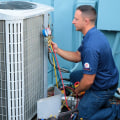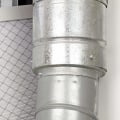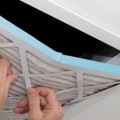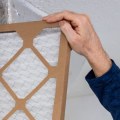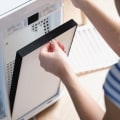In most cases, a Merv 11 air filter is not too tall for residential use. Generally speaking, anything under a Merv 13 air filter should provide very efficient air purification in a house without affecting airflow. The short answer is that it can, but it's not really a problem except in extreme circumstances. Most modern HVAC systems have no problem working with higher Merv filters, so millions of homeowners rely on them.
The main risk of high-efficiency air filters comes from the fact that they are not modified for long periods of time. If you're aware of changing filters, you're unlikely to experience filter-related issues with your HVAC system. Although the American Society of Heating, Refrigeration and Air Conditioning Engineers (ASHRAE) suggests MERV 13, it may not be the most efficient option for some residential HVAC systems. In fact, MERV 11 may even be too restrictive. It is best to adhere to the oven manufacturer's recommendations or consult an HVAC professional to determine exactly which Merv rating is best for your specific system.
Typically, a filter with a higher MERV rating will reduce airflow. However, there are many other factors at play, such as the size of the filter and the type of fan motor in your HVAC system. If your furnace's MERV rating is too high, it can force it to work too hard and leave it vulnerable to damage. In addition, you may not get the air velocity needed to reach all parts of your house, leaving inconsistencies in temperature. Using an oven filter with a higher MERV rating than your use case requires may have adverse effects.
The thickness of the filter material in a MERV 11 filter, for example, is greater than that of a MERV 8 filter. Therefore, in order for enough air to pass through the filter, a greater amount of energy is consumed. More use can lead to increased wear and tear, so be sure to maintain your oven regularly. However, MERV 11 filters are not considered too high for residential use. Anything higher than a MERV 11 is designed for commercial households or households with family members suffering from respiratory problems.
Opinions vary widely on the subject, but all professionals agree that a good HVAC air filter is necessary for your home because they have seen all the problems that an incorrect type of air filter can create in a home's HVAC system. Burned motors and controls can result from filters that are too restrictive. Coils, motors and blowers can also be easily clogged by weak filters, creating increased fan usage, resulting in higher energy costs. I also explain that fine filters clog faster than clogged filters and coils quickly reduce comfort in some rooms in very hot or cold climates and can damage or reduce equipment life. I am using a HEPA filter on my mask (I bought a vacuum filter) and, apart from the slightly odd smell of plastic, I think it keeps me safer while buying my bread. Using your home's highest Merv rated filter would restrict that airflow, making it difficult for your HVAC to function properly.
Since air filters in many residential homes contribute more than half of that pressure, it's clear that air filters are responsible for much of the pressure drop in an HVAC system. In operating rooms and other spaces where absolute cleanliness is required, filters with a MERV rating of 17 to 20 are used. Finally, I say that there is no price for peace of mind and that if they feel that a high Merv filter would provide that they should do so with the warning that they should replace dirty filters often enough - it may be a week or two, depending on the MERV rating, effective filter area and the amount of particles that enter your home. I have three MERV-13 filters in my house and the pressure drop in all of them is less than 0.06 i. In addition, most low capacity air handlers are not able to mount the static pressure needed for high MERV filters, so CFI configurations with those often require in-line booster fans. More importantly, they are more effective than medium-grade pleated filters at improving indoor air quality (and potentially improving health) for you and your family. Since using an air filter isn't optional, you'll need to find a filter that meets your air filtration and airflow needs.
I also landed here also trying to land here trying to figure out what material the Honeywell Elite Allergen Air filter is made of. Created by the American Society of Heating, Refrigeration and Air Conditioning Engineers (ASHRAE), it is a porosity scale ranging from 1 to 16, with most household air filters ranging from 4 to 13 MERV. Remember that while cost is an important factor to consider, you'll save a lot more money in the long run by maintaining good air quality in your home with good air filters. Filters and masks can be disinfected, so I read somewhere, in a low-temperature oven following very specific guidelines.
For residential use, the standard recommendation is to choose a furnace filter with a MERV rating between 7 and 13...


